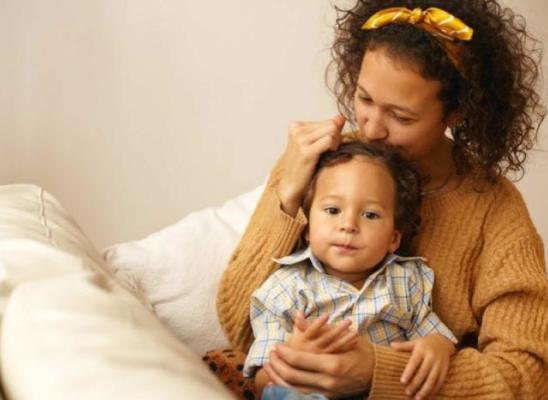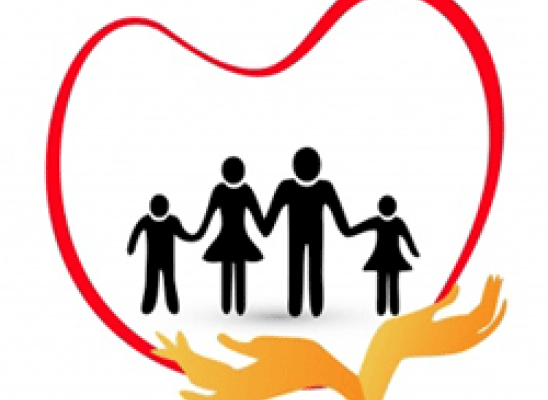Supporting Your Teen with Trichotillomania When You Share the Struggle: Tips for Parents

Online test
Find out the severity of your symptoms with this free online test
Parenting is a challenging journey, filled with moments of joy, frustration, and everything in between. For parents who live with trichotillomania, this journey can become even more complex. When both you and your child are affected by the same disorder, parenting becomes a delicate balance of managing personal struggles while guiding and supporting your child through theirs. Understanding this dynamic and developing strategies to cope with it can foster a healthy environment for both the parent and child.
Understanding the Family Connection
Trichotillomania, often referred to as "trich" or “hair pulling”, is a mental health disorder characterized by the irresistible urge to pull out one's hair, leading to noticeable hair loss, significant emotional distress, and impaired psychosocial functioning. It is not unusual for other mental health disorders such as depression and anxiety to be present along with trich.
One of the concerns parents with trich often express is whether their child could also be at risk for developing trich. While the exact cause of trichotillomania is unknown, it is believed to be a combination of genetic, environmental, and neurological factors rather than just genetics alone. In fact, twin studies looking at heritability have produced mixed results so it’s clearly not just genetics.
Sometimes, parents living with trich do have children who also have trich. Navigating that situation is a delicate balance. It takes understanding and patience, acknowledging the experience you share without stigmatizing it.
Manage Your Own Trichotillomania
There’s an old saying that goes something like, “You can’t pour from an empty cup.” Your child relies on you for love and support and comfort and guidance…the list goes on. To fully be there for them, you have to be in a place of health and wellness. When you neglect dealing with your own issues, they can drain your cup leaving you little to pour into your child’s cup.
The first step in effectively parenting your child who has trich while dealing with your own hair pulling, is to take care of you. Practicing self-care is one of the greatest gifts we can give to those we love – and to ourselves.
Self-care might look like:
- Seeking therapy for yourself
- Healthy lifestyle and leisure practices
- Finding a support group
Open Communication with Your Child
When both you and your child struggle with trich, open and honest communication is key. Your child needs to understand that they are not alone in their struggle and that their condition is not something to be ashamed of.
Shame and fear of judgment are commonly experienced by people living with trich and often create an avoidance of situations where they may feel judged or embarrassed. People living with trich who participate in online forums often speak of the importance of having supportive, safe conversations with parents is something that was or could have been helpful. Providing a safe space for these conversations can help your child feel secure, supported, and understood.
Parents often wonder whether it’s ok or how much to share with their child. It’s ok to share your experiences with trich. The key to sharing is to share in a way that is age-appropriate for your child and sensitive to their needs.
Acknowledge the challenges that come with trich and offer reassurance that they can manage their trich with the right strategies and support. Encourage them to express their feelings about their experience. Then listen without judgement.
Model Healthy Coping Strategies
As the parent your child will look to you for how to cope with life’s challenges. By modeling healthy coping strategies, you can teach your child effective ways to manage their own trich. This includes demonstrating how to deal with stress in a healthy manner, using tools like mindfulness, relaxation techniques, seeking treatment, and practicing self-care.
If you find yourself struggling, be open about it with your child, and explain the steps you are taking to address it. This transparency helps in normalizing the disorder and reinforces the idea that it is okay to seek help when needed.
Create a Supportive Home Environment
A supportive, stable home environment is crucial for both you and your child. This means creating an atmosphere where trich not hidden but rather a challenge that the family faces together. Encourage open discussions about the disorder, and celebrate small victories, whether it’s a day without pulling or the successful implementation of a new coping strategy.
Have a routine. Routines promote stability and reduce stress. Reducing overall stress in the household can lessen the triggers that lead to hair-pulling episodes.
Seek Professional Help
A therapist specializing in trich can provide tailored treatment plans that address the unique needs of each family member. Family therapy may also be beneficial in facilitating communication and understanding within the household.
Conclusion
Navigating parenting while dealing with your own trichotillomania is challenging, but it is possible to create a nurturing and supportive environment for both you and your child. By prioritizing your mental health, fostering open communication, modeling healthy coping strategies, and seeking professional support, you can effectively manage this disorder while guiding your child through their own journey with trich. Remember, you are not alone, and with the right tools and support, you and your child can thrive.
References
1. Novak, C. E., Keuthen, N. J., Stewart, S. E., & Pauls, D. L. (2009). A twin concordance study of trichotillomania. American journal of medical genetics. Part B, Neuropsychiatric genetics : the official publication of the International Society of Psychiatric Genetics, 150B(7), 944–949. https://doi.org/10.1002/ajmg.b.30922
2. Weingarden, H., & Renshaw, K. D. (2015). Shame in the obsessive compulsive related disorders: a conceptual review. Journal of affective disorders, 171, 74–84. https://doi.org/10.1016/j.jad.2014.09.010
3. https://www.reddit.com/r/trichotillomania/comments/11dxcu5/concerned_parent_of_a_teen_who_recently_started/
Online test
Find out the severity of your symptoms with this free online test
Start your journey with TrichStop
Take control of your life and find freedom from hair pulling through professional therapy and evidence-based behavioral techniques.
Start Now



